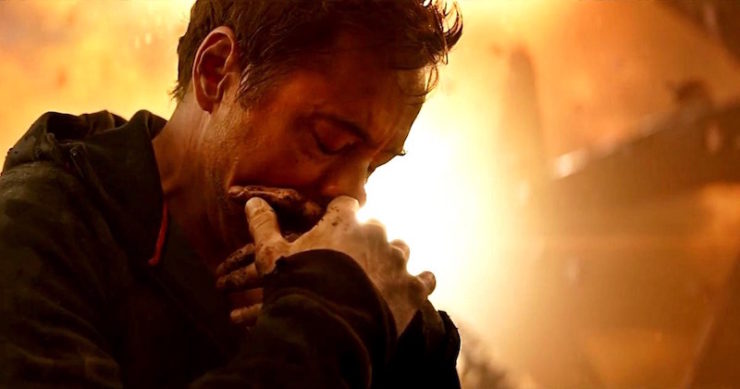Avengers: Infinity War is a culmination of over ten years of work, eighteen films, and nearly a dozen television shows. To say that it is surprising to live in a era when everyone is waiting for the next superhero movie can’t be overstated—though there were early-comers to this trend, Marvel Studios has made these stories “must-see” blockbusters and dominated summer after summer at the box office.
And yet, when it comes to expectations and theories about the new movie, only one question seems to hang in the air: Who’s gonna die?
Over the years, we’ve come to expect death as part of the ticket price for longform storytelling. Spend enough time with a certain set of characters, eventually someone has to die, right? You can’t get comfortable—so here’s the fictional equivalent of a refresh button.
Where the Avengers are concerned, the potential threat of character death is obvious: Thanos, the major (though largely unseen) antagonist for this arc of films, is all about death. He states in the trailer that he’s planning to wipe out half of all life in the universe—that’s what getting his hands on the Infinity Gauntlet and those fancy stones has been all about. And frankly, he almost has to make good on the promise in order to seem like an effective villain. Which means we could be looking at not just one or two losses, but a whole bucket of them.
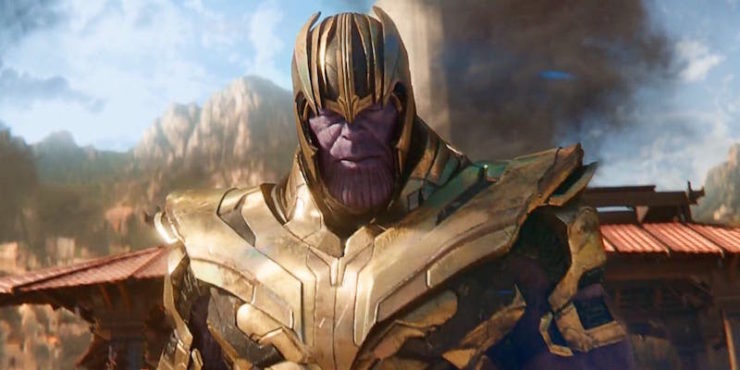
And because of this threat, the internet is abuzz with speculation about who is going to die and how and when. Most comic book fans are already rolling their eyes because they know how this goes. Comics characters die all the time, and even the ones who are supposed to emphatically stay dead (hey there, Jason Todd and Gwen Stacey!) never truly do. But even if they did stay gone, why is it that the possibility of death has become the go-to way of getting people invested or excited?
We’re told time and again that good storytelling (especially the action-oriented brand) has this thing called stakes. And lately we’ve firmly entwined the concept of death with those stakes. Every single threat in an action film feels bigger than the last one, often at a scale that is incomprehensible to the human mind. This machine will level a building. That monster wants to wipe out a solar system. How do you help us process the seriousness of a threat? How do you make us believe that all of these dangers have real consequences? Easy. You kill someone. And it can’t be just anyone either; plenty of people died in the Battle of New York during the first Avengers, but none of them were characters that we knew and adored. So you up the ante by making sure the audience knows that death can come for anyone, even the most beloved characters.
So now I’m going to say it, the most unthinkable retort I can muster… Who cares?
For the most part, death is not interesting anymore as a dramatic device. It’s even less interesting when you know a little bit about the medium that you’re applying it to; sure, Thanos might kill half of the Avengers… and then the plot of the next Avengers film will probably be about time traveling to undo the damage the big purple guy did. It’s not that farfetched of an assumption, and anything with magic or science fiction tech can pull it off. Even if the next film doesn’t go that route, you know it can be done at any time, whenever there’s need for a comeback. In fact, this was already done to us in the MCU: Phil Coulson’s death in The Avengers lasted for about three seconds in the real world before Agents of S.H.I.E.L.D. was announced. And while it was great in the moment to know that Agent Coulson would be back, it still robbed the first Avengers film of the impact of that moment.
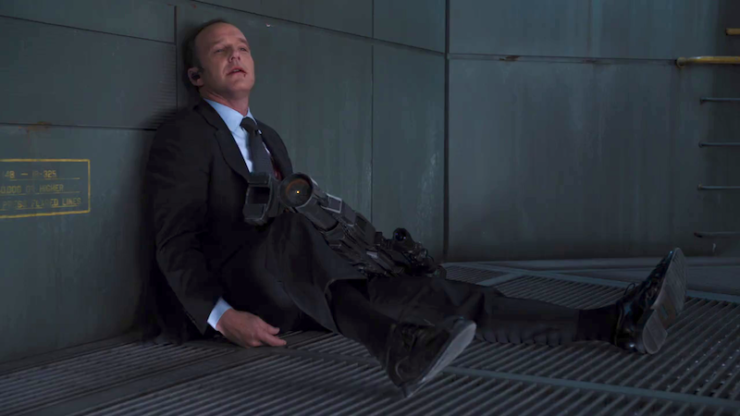
By the way, whose death am I supposed to care about here? Vision? I met that guy like two films ago, and he was super weird about Scarlet Witch in Civil War. Meh. Steve Rogers? He’s died before in the comics and returned, plus we know that Chris Evans has wanted out of these films for several years now. And as much as I’d miss him, there are two established MCU characters (Bucky and Sam) perfectly poised to take up his mantle. T’Challa, or Okoye, or anyone else from Black Panther? Killing characters that were just introduced is bad form, and makes it even more likely that they’d be resurrected somehow. Groot has already died; Peter Parker’s a darned kid with sequels incoming; Doctor Strange is a self-important jerk; Nebula just became not-evil yesterday; Ant-Man and Wasp are in a summer outing with their names on it later this year; they already wasted their chance to kill off Hawkeye in Age of Ultron (after ruining his backstory! Comics Clint 4ever!); Rhodey has already been paralyzed—what more can you do to the man without seeming unusually cruel? The only person who would really hurt (for my part at least) is Tony Stark, the de facto godfather of the group, who probably does need to bow out in epic fashion since he’s made it clear that he can’t give up his mecha-suit addiction.
And let’s say that a character or two do pull off tear-jerking death scenes in the upcoming film. I will sob at the screen, completely aware that I’m being manipulated, annoyed by how easy it is. Even if the character stays dead, the fact that these are always the stakes now damages the emotionality of the moment. I’m expecting death, and when you expect something traumatizing, your brain shores up against it. Sure, you can go the surprise route and Whedon someone (I’m a leaf on the wind…), but even that trick is overplayed at this point. When you know big reactions are the goal, it can sour the story, and you’re forced to ask why it’s being done. And if the only answer you come up with is “to make you feel a thing” without specific story- or character-based reasoning, then the whole exercise is lazy—even if it is affecting.
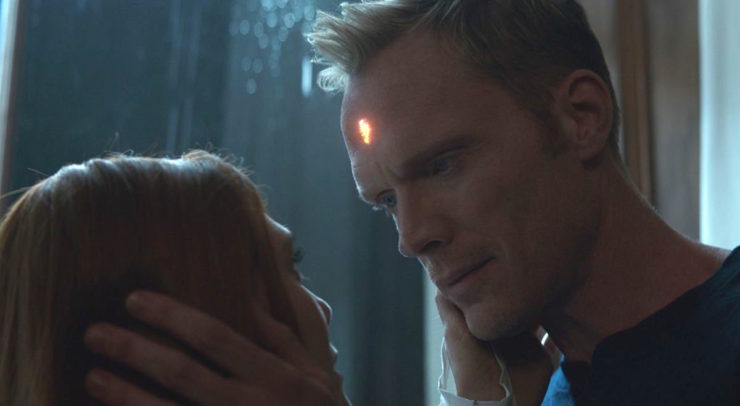
Even stories that seem to do a good job with death can still undermine themselves in execution. While Star Wars patted itself on the back for killing its entire central cast in Rogue One, the film didn’t allow its audience to know the characters well enough before losing them. The impact of their deaths was down to the surprise and sadness of watching them all perish, not a deep-rooted sense of grief that emerges when you have to let go of fictional figures who have come to feel like friends and family. And that’s a shame because Rogue One is right to use death the way it does; if getting the Death Star plans to the Rebellion isn’t a near-insurmountable feat with horrific consequences, then there’s really no point to the film at all. But their deaths don’t automatically make Rogue One more meaningful. Death can be part of a well-told story, but unless your tale is literally a rumination on mortality, it doesn’t need to be the big one-two punch of your narrative.
There’s also the outer world of fandom to consider. When you’ve got an entertainment juggernaut like Marvel, telling so many disparate stories at once, the main thread of a single narrative stops mattering quite so much. If you don’t like the outcome of a film, you can just hop over to Archive of Our Own and read a fanfic where the situation turns out more to your liking. Heck, you can even pick up a Marvel comic with the same characters in entirely different configurations. Since this isn’t the end-all-be-all for these heroes, their fates seem far less permanent—and therefore less worthy of concern.
This doesn’t mean that I have no hope for Infinity War. Marvel films have proved before that they understand investment starts with character interaction over plot points. Civil War was a perfect illustration of that engineering; watching Captain America and Iron Man go at it because one is protecting his childhood companion and the other is blind with despair over the death of his parents and the dishonesty of his friend is an excellent example of how to engage emotionally without loss of life looming over the proceedings. If the Infinity War narrative ends on hope in spite of devastating losses and doesn’t oversell character death as the reason it should be taken seriously, the film will likely make it out all right.
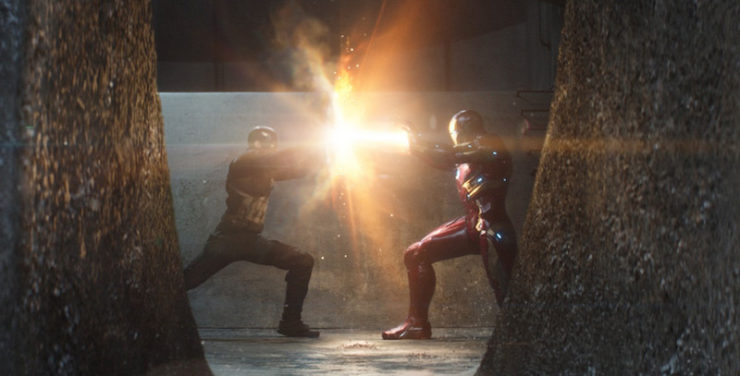
Investment takes time and shorthand will burn you in the end. Even a dozen-and-a-half films isn’t enough hours spent with each character to panic over their every move. If anything is going to matter in Infinity War, it needs to be because the characters care about one another, not because everyone is gonna croak. But all this theorizing leading up to the film begs the question—when will the culture at large burn out the threat of sudden death? When do we become totally numb to it as a storytelling choice? Because death without meaning doesn’t make for good drama—it gives us the taste of a real emotion, then shrugs all the way to the bank.
Emmet Asher-Perrin was just sad when she realized that despite loving all these superfriends, she really had no interest in who was gonna kick the bucket. You can bug her on Twitter and Tumblr, and read more of her work here and elsewhere.










